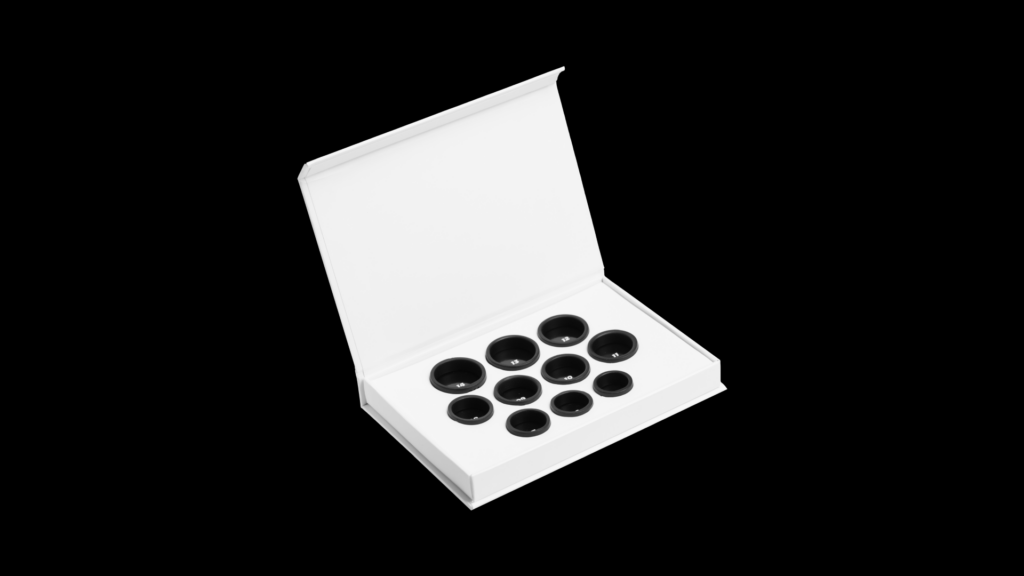The gut is often called the second brain, which isn’t surprising considering all the functions in the body it affects. It also houses the enteric nervous system that maintains contact with the brain and central nervous system and helps regulate processes vital to the human body. Our diet, environment, stress levels, amount of exercise, etc., influence the composition of the gut microbiome. Lack of fibre, hydration and exercise, sugary and processed foods, too many antibiotics and emotional or physical stress can negatively impact the gut microbiota. Gut health refers to the balance of microorganisms that inhabit our digestive tract.
Signs of an unhealthy gut
These are some red flags that can tell you about your gut’s health status:
Your tummy’s giving you troubles more frequently than usual
The dominant function of the gastrointestinal tract is to digest food, absorb its nutrients and drive out waste. You can tell your gut is healthy if the bowel is regular, well-formed and easy to pass. Frequent gas, bloating, diarrhoea, constipation and heartburn indicates that your gut is having a hard time processing food and eliminating waste. These are often accompanied by abdominal pain and can be signs of Irritable Bowel Syndrome (IBS), a common condition that usually affects the large intestine. The imbalance in the gut bacteria, referred to as dysbiosis, can contribute to IBS in some cases. Chronic symptoms can also be suggestive of Crohn’s disease (a chronic inflammatory disease of the intestines, especially the colon and ileum, associated with fistulae or ulcers) or ulcerative colitis (a chronic bowel disease marked by inflammation in the digestive tract). If you’re experiencing such symptoms and blood in your stool, you should see a doctor immediately.

Your sleep schedule is out of whack and you’re always tired
Most of the body’s serotonin (the hormone that controls mood) and melatonin (that controls sleep) is produced in the gut. Bad bacteria or inflammation in the gut may affect the production of melatonin, affecting sleep. Research shows that intestinal metabolism is closely linked with brain function by way of the brain-gut axis. The gut microbiome (the colony of bacteria, viruses and fungi that reside in the gut) has an impact on circadian rhythmicity, which controls the sleep-wake cycle. The shift between day and night doesn’t just affect the circadian rhythm (internal clock that regulates the body’s functions) but also the rhythm of the gut microbes; this naturally has more of a negative impact on the biological rhythm of other organs, leading to inflammation and causing symptoms like stomach pains, bloating, inflammation, and so on. An unhealthy gut can also lead to sleep disorders like insomnia and chronic fatigue.
Surprising food intolerances are cropping up
Poor quality of bacteria in the gut can lead to food intolerances, where you might struggle to digest a certain food. This can lead to gas, nausea, abdominal pain, diarrhoea and bloating. Surprising or unexpected food cravings for a sugary snack late at night or something carb-heavy and fried when your mood is low could be signs of a gut imbalance. Consuming too much sugar helps the bad bacteria thrive in your gut and cause dysbiosis. A good way to change your eating habits is by changing the microbiome composition.
Some common, growing food intolerances with lactose, gluten, caffeine, FODMAPs, etc., are explained below.
People can suddenly become lactose intolerant. Lactose is the sugar found in milk and dairy products, which is broken down in the body by an enzyme called lactase. A shortage of lactase can lead to digestion problems. People are also diagnosed with gluten intolerance. Gluten is the protein found in barley, wheat, rye and triticale. In celiac disease, consuming gluten can set off an irregular immune response in the small intestine. Over time, this reaction can damage the small intestine’s lining and cause malabsorption. This consistent intestinal damage can result in diarrhoea, fatigue, bloating, weight loss, anaemia and more. There’s also a form of non-celiac gluten sensitivity and wheat allergy, which can cause bloating, diarrhoea and stomach pain, pointing towards bad gut health.
Some people also experience caffeine intolerance. Most adults can safely consume up to 400 mg of caffeine a day without any unpleasant side effects. However, a study has found that the chances of coffee drinkers developing IBS are 44% higher compared to those who never drink coffee. An illuminating article from Johns Hopkins Medicine lists caffeine (from all sources such as tea, chocolate, headache pills, soda, and chocolate) as one of the top five foods to remove from your diet if you have IBS since caffeine stimulates diarrhoea. Sensitivity to caffeine can be a result of a bad gut, resulting in a decreased ability to metabolise and excrete it.
FODMAPs, which stands for fermentable oligosaccharides, disaccharides, monosaccharides and polyols, are a group of short-chain carbs found naturally in foods that often cause digestive stress. The bacteria in the large intestine break down or ferment the FODMAPs, producing bloating, gas or discomfort. They also draw water into the digestive system, causing diarrhoea and discomfort.

You’ve perfected your skincare routine, but your skin insists on acting up
The skin can be a good indicator of what’s happening inside your gut. The gut and the skin communicate with each other regularly through the gut-skin axis. Skin issues—like acne, eczema (skin becomes rough and inflamed with blisters, causing itches and bleeding), psoriasis (skin cells build up and form scales and itchy, dry patches) and rosacea (certain facial blood vessels enlarge, giving the cheeks and nose a flushed appearance)—are often a surefire sign of an unhealthy gut. Balancing your diet is the most essential factor in clearing up skin conditions because the gut microbiome influences overall health. Probiotics have also been found useful in addressing skin diseases.
Your moods fluctuate quicker than the weather
Gut health influences brain health and moods since there’s a direct link between the gut microbiome and the central nervous system, which controls brain function. According to the journal Clinics and Practice, inflammation in the central nervous system and gut disturbances may be the potential cause of anxiety and depression. Probiotics can potentially help with such conditions. Bad bacteria like Escherichia coli make a protein called curli, which can prompt other proteins to misfold. These misfolded proteins transmit the error up the vagus nerve (the longest and most complex cranial nerve) to the brain, where they’re linked to disease symptoms. Studies on mice suggest that infection in pregnancy can set off a cascade of activity. In the mother’s gut, segmented filamentous bacteria stimulate T-helper 17 cells, which are part of the immune system. They produce immune molecules that travel to the fetus’s brain and provoke autism-like behaviour. The gut bacteria also generates at least 90% of the neurotransmitter, serotonin, which is responsible for regulating emotions. Changes in the gut microbiome can affect the production and release of serotonin, leading to mood fluctuations.
You’re putting on or shedding off the pounds with no apparent effort or changes
Sudden fluctuations in weight without any changes to exercise routines or diet may be a sign of an unhealthy gut. An imbalanced gut can impair essential bodily functions like absorbing nutrients, storing fat and regulating blood sugar. Small intestinal bacterial overgrowth can lead to unintentional weight loss and insulin resistance, or the urge to overeat due to decreased nutrient absorption might cause weight gain. Some bacteria protect us against obesity or uncontrolled weight gain by maintaining healthy metabolic markers and strengthening the gut lining. For example, the bacteria Akkermansia Muciniphila chews on the mucus that covers the gut lining which encourages the barrier to produce more, making it stronger and thicker and thus, preventing undesirable toxins from entering the body and triggering an overactive immune response and inflammation.
A balanced gut ensures appetite hormones are working correctly, and because a balanced diet with lots of plant fibres has less refined sugars and fats that cause weight gain, they aid with weight loss. This area of research is relatively novel, so further confirmatory studies are required.

Headaches are cramping your style often
Research has suggested that the gut-brain connection can impact migraines, especially with gut conditions like IBS. Studies have shown that people who get frequent headaches also have gastro issues. Having prebiotics and probiotics along with a good anti-inflammatory diet is a good way to minimise the risks of migraine. Gut inflammation can lead to inflammation in the body. During a migraine, there’s a cascade of neural inflammation that can potentially be mitigated by a healthy gastrointestinal (GI) system, according to Danny Park, M.D., Section Head of Neurology at Swedish Covenant Hospital in Chicago. If the severity of the migraine only increases, it’s a sign the gut is out of balance and can point to GI inflammation, which limits the system’s ability to absorb nutrients, vitamins and minerals. A mix of multivitamins, mineral supplements, probiotics, exercise, good sleep and addressing other psychological conditions (like stress/depression/anxiety) with meditation and yoga will help you start rebalancing your gut. Fermented foods such as tempeh, kimchi, sauerkraut and kefir also help with gut balance, as they’re natural probiotics.
The vagus nerve (part of the gut-brain axis), which promotes gastric motility, is affected by the migraine process. This is why migraine is accompanied by nausea, vomiting, bloating or abdominal pain says headache specialist Dr Katy Munro. Diet plays a crucial role in the onset of migraine. Sometimes, food intolerances can trigger migraine attacks, and craving for a certain food can be a signal that a migraine is coming on, she adds.
Conclusion
With the rush of life, it’s hard to pay attention to our bodies the way they deserve. Luckily, our bodies are more prescient than us and have some telltale signs of when our gut health isn’t in a very good place. Frequent gastric symptoms like diarrhoea, bloating, flatulence, etc., indicate that your gut isn’t digesting and metabolising food properly and could point to an imbalanced gut microbiome. An erratic sleep schedule could lead to hormonal changes that influence your appetite and cause you to overeat, thus affecting your gut. Random food intolerances begin to crop up when the gut microbiota interacts with certain food components. For example, eating too much sugar can lead to an abundance of bad bacteria in the gut and consequently, dysbiosis.
Since the gut microbiome influences the skin through complex immune mechanisms, any damage to the gut can cause inflammation that shows on your skin. Your moods fluctuating too much could be another sign of gut issues. As gut bacteria help make 90% of serotonin, a mood regulator, an imbalance in its levels can play havoc with the body. If you’re gaining/losing weight with no special effort from your end, the weight loss could be happening due to bacterial overgrowth. Weight gain could be from insulin resistance or the urge to overeat due to the malabsorption of nutrients by the gut. Lastly, a gut imbalance can cause migraines. Now that you’re armed with this information, you’ll know what to look out for the next time any of these symptoms manifest.
Disclaimer: The contents of this article are for general information and educational purposes only. It neither provides any medical advice nor intends to substitute professional medical opinion on the treatment, diagnosis, prevention or alleviation of any disease, disorder or disability. Always consult with your doctor or qualified healthcare professional about your health condition and/or concerns before undertaking a new healthcare regimen including making any dietary or lifestyle changes.
References








